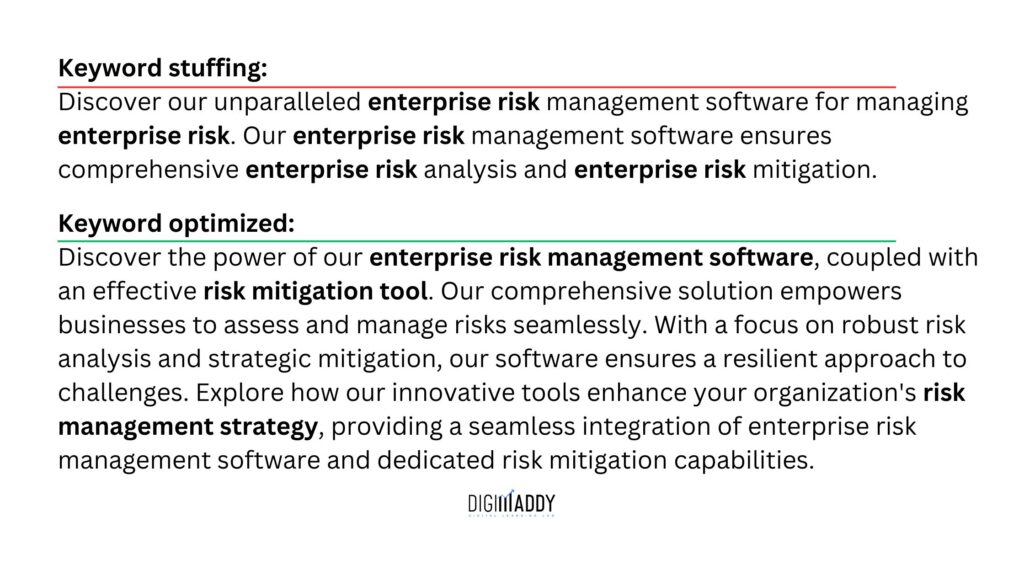In the fast-paced world of SEO, the pressure to rank higher often leads to questionable tactics. One such tactic is keyword stuffing, the act of bombarding your content with a target keyword, hoping to trick search engines into ranking you higher. But is this strategy worth the risk? More importantly, can you overuse a word in your article without Google penalizing you?
The short answer is no, but it’s not that simple. Google’s algorithms are far more sophisticated than keyword checkers, focusing on user experience and content quality. While they might not directly penalize you for keyword overuse, it can still backfire spectacularly.
Imagine reading an article where the target keyword appears in every other sentence, awkwardly shoehorned in, disrupting the flow, and making you want to tear your hair out. That’s the experience you create for your readers with keyword stuffing. Not only will they bounce away immediately, but Google’s algorithms might interpret repetitive, low-quality content as spam, potentially pushing your ranking down instead of up.

So, how do you optimize your content for search engines without resorting to keyword stuffing? Here are some effective strategies:
- Embrace synonyms and related keywords: Instead of repeating the same word endlessly, use a variety of relevant terms and phrases. This keeps your content natural and expands your reach to searches using different variations.
- Focus on semantic relevance: Don’t just stuff keywords; create content that truly delivers value and resonates with your target audience. Google understands the context of your content and rewards pages that address search intent effectively.
- Strategically place keywords: While there’s no magic “keyword density” anymore, it’s still important to include your target keywords in key places like titles, meta descriptions, headers, and naturally throughout the text. This helps search engines understand your topic without sacrificing readability.
- Write for humans, not robots: Remember, your primary audience is real people, not search engine bots. Craft engaging content that informs, educates, and entertains your readers. When you prioritize user experience, SEO benefits naturally follow.
Try this free keyword density checker tool to see if you are stuffing your content with keywords or not.
By following these tips, you can optimize your content for search engines without compromising quality or alienating your readers. Keyword stuffing might seem like a quick fix, but in the long run, it’s a recipe for disaster. Invest your time in creating valuable content that resonates with your audience, and you’ll see far better results than any keyword-cramming technique could ever achieve.
Remember, quality content is timeless, while search engine algorithms are constantly evolving. Focus on building a strong foundation of informative and engaging writing, and you’ll be well on your way to SEO success, keyword stuffing-free.
